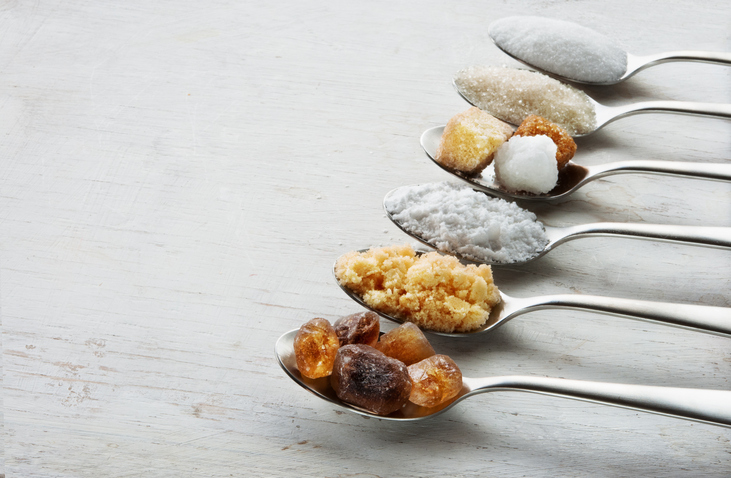
Healthy alternatives to sugar
The most common type, white sugar, is the least recommendable. Here are some other options.
Many of us look upon sugar is a basic that we use to enhance the flavour of a coffee or a yoghurt. However, sugar consumption can cause sharp spikes in blood sugar. Because it is not an essential nutrient, many nutritionists question what it does to our health.
Because it is refined, white sugar, which is found in most homes, contains none of the nutrients in the sugar cane or beetroot from which it is extracted. When it is processed, it becomes pure sucrose, and consuming it increases the risk of suffering from conditions such as caries, diabetes and obesity.
The latest report from the World Health Organisation (WHO) recommends keeping sugar consumption below 10% of total daily calories. So, for example, a normal 2,000 calories a day diet should only include 50 grams of sugar (around 12 teaspoons).
Seven healthier, natural sweeteners
There are healthier options available that you can use to replace white sugar. These are:
- Honey: this sweetener is a traditional part of the Mediterranean diet and, unlike others, it has a specific taste and texture, with nuances that vary according to the plant and the way it is collected. It contains fructose, glucose, vitamins, minerals, amino acids and enzymes, but with its high glycaemic index, it must be eaten in moderation. Choose honey that has not been processed at high temperatures, because this destroys its nutrients.
- Panela: This is unrefined (whole) cane sugar, in other words, the purest and most natural there is. It is also known as rapadura sugar, and it comes from Colombia. Panela is obtained by evaporating the juice from the plant and crystallising the sucrose. Although it has more nutrients than brown sugar, it has little nutritional value. It also contains a lot of sucrose (between 75% and 85%) so it should be consumed sparingly.
- Brown sugar: The sugar extracted from sugar cane is processed less thoroughly to make brown than to make white sugar, hence the darker colour. It contains vitamins, minerals and animo acids not found in white sugar, but in such tiny amounts that it has little nutritional value.
- Molasses: This product is made by fermenting cereals such as rice, barley, millet, corn or kamut (a type of wheat). Its golden, liquid appearance is like that of honey. It contains slightly more vitamins and minerals than refined sugar, but does not cause spikes of insulin in blood and provides stable energy, since it is metabolised slowly by the body. Because it is a fermented product, it is good for the digestion and keeps the healthy bacteria in your gut in good condition. That is why it is considered the most natural, healthy, and balanced sweetener.
- Coconut sugar: This type of sugar is extracted from the husk of the coconut palm flower (coconut tree), which is heated so that part of the water evaporates. This creates fine, brownish crystals, which are very sweet and have a slight coconut flavour. This natural sweetener contains the most potassium and, because it is unprocessed, it also has numerous vitamins and minerals. Although it has a low glycemic index (35% compared to 60% of white sugar) it must be eaten in moderation.
- Stevia: Used as a medicinal plant in ancient China, this plant sweetens 300 times more than refined sugar, and a tiny amount is enough to obtain a very sweet flavour. It contains nutrients, but it has only just started to be used and its health benefits are still unknown. Buy natural versions and stay away from liquids, tablets or white powders, which mean that it has been processed.
- Agave syrup: This sweetener is obtained from a Mexican plant called “blue agave”, which is used to make fermented drinks, such as tequila. Agave nectar is rich in inulin (a soluble fibre) and fructose, which is sweeter than white sugar, although it is absorbed more slowly and does not increase the blood glucose levels. Black agave syrup is less refined, but even so, you need to watch the dose, because eating too much of it may harm the liver.
Remember that shop-bought pastries contain more sugar and fat than almost every other food. Fresh fruit is always a better option to eat between meals than processed food (even if it is a ‘diet’ food).
You may find it difficult to eliminate sugary foods from your diet (meetings and parties), but experts recommend we do not eat them, and in any case, that we consume them in moderation.
This post is also available in: Italian
